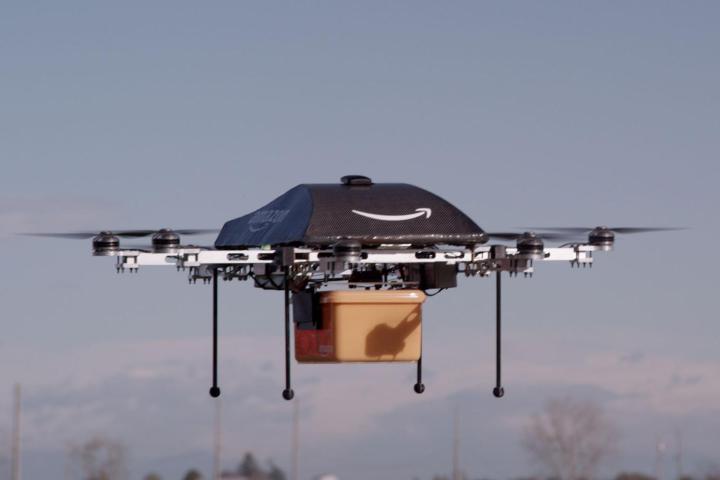
So upset was Amazon by the aviation body’s overly cautious approach, as well as its slow response to repeated requests for permission to conduct tests at outdoor sites, that the Web giant had vowed to move its drone-related R&D program to locations outside of the U.S., taking skilled workers and related economic benefits with it.
A recent Guardian report revealed Amazon has indeed followed through on its threat, setting up one of its test sites just a couple of thousand feet from the U.S. border in what looks to be a provocative move to highlight the company’s frustration at the FAA’s confining stance on drone technology.
Located in British Columbia, Canada, just north of Amazon’s Seattle base in Washington, the company’s test team is described as a “formidable” mix of “roboticists, software engineers, aeronautics experts and pioneers in remote sensing – including a former Nasa astronaut and the designer of the wingtip of the Boeing 787.”
Prime Air project leader Gur Kimchi told the Guardian the plan had always been to test its flying machine in the U.S., but restrictions on outdoor flights have prevented the team from trying out its drone in realistic conditions. “So we do what’s necessary,” Kimchi said, “We go to places where we can test outside, in this case Canada.”
The trial flights have reportedly been taking place at the secret site in British Columbia for the last few months, with full backing from the Canadian authorities.
The move to reveal its test program – taking place within walking distance of the U.S. – appears to be an attempt by Amazon to push the FAA into taking a long, hard look at the restrictions it currently imposes on companies eager to move ahead with drone-based research on American soil.
Speaking just last week at a hearing of the Senate Committee on Commerce, Science and Transportation, senior Amazon executive Paul Misener said the U.S. “remains behind in planning for future commercial UAS operations,” adding that his company is “allowed to innovate in other countries in ways that we cannot in the U.S.”
Besides Canada, Amazon is also building an R&D site in the UK, where much of the work is expected to be geared toward drone testing.
There’s still a long way to go for Amazon to realize its dream of delivering goods to customers by drone, but if the FAA can eventually be convinced that such a service would be safe and reliable, there’s certainly a chance it could one day get off the ground.
Editors' Recommendations
- Amazon expands its virtual healthcare service across the U.S.
- Amazon shows off new delivery drone ahead of trial service
- Amazon-branded TVs could hit U.S. market in October
- Autonomous drones are helping to keep a U.S. Air Force base in California secure
- ‘Skyborg’: U.S. Air Force seeks fleet of autonomous planes


